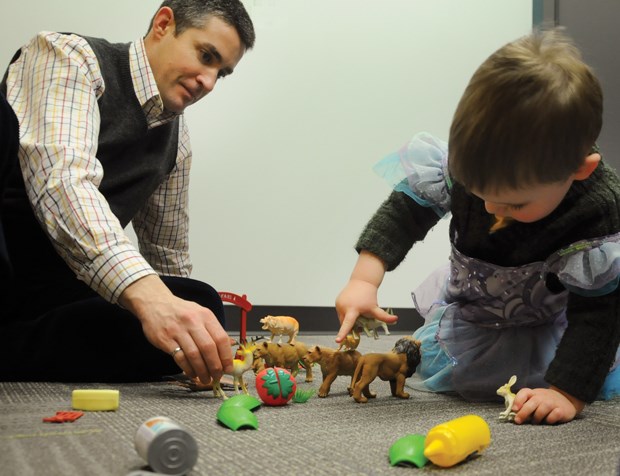Question:
“I’m feeling out of touch with my seven-year-old daughter. She seems more touchy and demanding than when she was little and sometimes is quite hard to be with. We are all so busy and rushing much of the time. How do I connect more with her and help her?”
Answer:
For many of us, parenting can be an alarming wake-up call to the sheer volume of ever-expanding roles to play and hats to wear. From judge, tutor and teacher to paramedic and chauffeur, the list seems endless.
It’s time to recharge with something quite basic that gets lost a little (or a lot) in the grand dance of busy modern family life. Here, we shift gears, slow down, back off our own agendas, and set aside some time to just be with a child when he or she is in their most natural state: at play.
Like many clinicians who work therapeutically with children, I operate from the principal that play is the child’s language. Play is so universally important to children because it is the most natural way that they communicate. It is instinctive and developmentally necessary. Where adults talk about their experiences, thoughts and feelings, children use toys and play to explore their understanding of the world and relationships, and to express what they think and how they feel. Play gives children a way to communicate feelings they do not understand or cannot express any other way.
With her behaviour, it sounds as though your daughter may be feeling disconnected. Having time alone with her at play is a great place to start.
When we take on this role of playmate and enter into the child’s play with awareness and intention of letting the child lead, we pave the way for:
- 1. Real expression of feelings on the part of our child.
- 2. A sense that we “get” and “accept” our child as he or she is.
- 3. A positive shift in his or her behaviour.
Developing a deeper understanding of your child creates feelings of warmth and connection between you.
A unique training group for parents, Child Parent Relationship Therapy (CPR-T), invites and trains parents to have a special playtime with their child. This is an unstructured play where the child leads, parents learn to speak the language of play and to set limits to help a child practise better self-control. As a parent, you are the most powerful influence of change in your child’s life, and when you find new ways of relating to your child through their play language, you can discover a window into his or her world that is accessible and always available to you. This well-established, well-researched program in North America was formulated by nationally renowned play therapist Dr. Garry Landreth.
Training groups for parents in this play-based method are available at Family Services of the North Shore beginning this month.
For more information call 604-988-5281 x307 or go to familyservices.bc.ca.
Erin Bruchet, M.Ed., is a child and youth clinical counsellor at Family Services of the North Shore. familyservices.bc.ca



